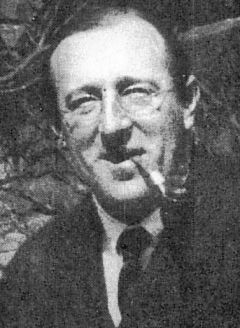View entry
Name: HOWARD DE WALDEN, Thomas Evelyn Scott-Ellis, 8th Baron, Lord

Nee: Thomas Evelyn Scott-Ellis, 8th Baron Howard de Walden
Birth Date: 9 May 1880 London
Death Date: 5 Nov 1946 London
First Date: 1921
Profession: Ostrich farm
Married: In Marylebone 13 Feb 1912 Margherita Dorothy Van Raalte CBE b. 19 Mar 1890 Aldenham, Herts., d. 31 Dec 1974 London
Children: John Osmael (1912-1999); Bronwen Mary (twins) (1912-2003); Elizabeth Gwendolen (1914-1976); Essylt Priscilla (1916-1983); Margaret Irene Gaenor (1919-2002); Rosemary Nest (1922)
Book Reference: North, Debrett, Peacocks, Rift Valley
War Service: Lieut. 10th Hussars in SA
School: Eton & RMC
General Information:
North - due EA from England to start ostrich farm Jan 1905; Firearms registered at Mombasa 14/2/1905; One of 86 signatures on a petition to the FO objecting to a proposed Zionist settlement in EA Feb-April 1905
Peacocks - (by John Osmael Scott-Ellis) - 1930 - I left Eton at Christmas 1930 …… my destination was …. Kenya Colony ….. My father had always had a dream of owning a farm or a little land in that beautiful country, from before the First World War. In about 1921 he bought some land on the slopes of Mount Elgon on the plain below and around the small village of Kitale. He was advised against the purchase of the farm on the slopes of the mountain, later to be called Chorlim, by the experts. My father may not have been an expert but he was extremely knowledgeable. He was aware that Mount Elgon had been a volcano and that old lava is the most productive soil so Chorlim became the best of our many farms in Kenya, probably one of the best in the whole country and, certainly to my eyes, the most beautiful. ……… [more] ….. Most of the houses had large and beautiful trees on the lawns around them and were very similar to the better type of English country house. This is not surprising as quite a large number of the original settlers came from upper-class families and tried, mostly successfully, to reproduce what they had been used to in their childhood. Among these were Lord Francis Scott, Lord Delamere, Mervyn Ridley and many others including my father who, however, was not a permanent resident in the country and therefore less well-known than the rest. It was one of my father's visits in the early 1920s that he made friends with the celebrated Ewart Grogan. Grogan owned a lot of things in Kenya and had actually settled in the country after his walk from the Cape to Cairo in 1897. ………
My father and Grogan became partners, which was not a good idea and lasted a very short time. There was never any animosity between them, but Grogan was the sort of man who was on top of the world one moment and broke the next. The long and short of their parting was that my father found himself with much more land, including the whole ridge above Nakuru as well as Elburgon, and Molo, and various other things such as shares in a newspaper. He had to either cut his losses or try and make a go in the country. He decided on the latter course and so our association with Kenya began. The newspaper shares became a controlling interest in the 'East African Standard' which was the major newspaper in the country and of course the new land had to be managed. My father soon found out that the biggest danger was dishonesty. An owner who, when there were no telephones, could only reach you at a pinch in 3 weeks, was a sitting duck.
He decided to ask a young cousin of ours, Buster Powles, who was then in the Army of Occupation in Cologne, if he would like to take the chance and go out to Kenya. Luckily for our family he agreed and eventually became in charge of everything, a job which he carried out with great success and total integrity until Kenyan Independence in 1963 ……….. When Independence came it was decided that we should get out altogether and sell the farms. It was obvoious that absentee landlords were not going to be popular with the new regime. We were fairly lucky as the farms on the slopes of Mount Elgon - Chorlim, Sabwani and 66 - were taken over by the government and still are owned by them. They kept our managers on. …… One couldn't export Kenya shillings and, while these transactions were going on the farms continued to make profits, accumulating large sums. We thought the best thing to do would be to invest in something that we could eventually be bought out of in a negotiable currency. We therefore started to buy up small hotels and suchlike. These we sold out to the Block group eventually who owned most of the big hotels already and were able to pay in sterling.
Rift Valley - Member of the Rift Valley Sports Club - Jan 1929 - Elected - 20 Mar 1926 - Lord Howard de Walden
